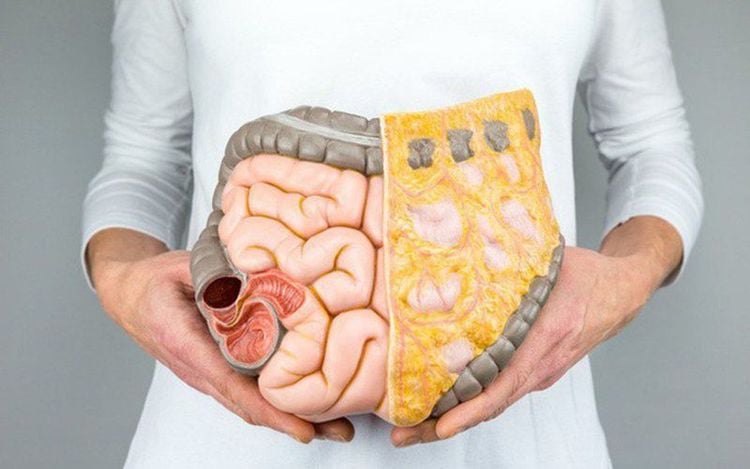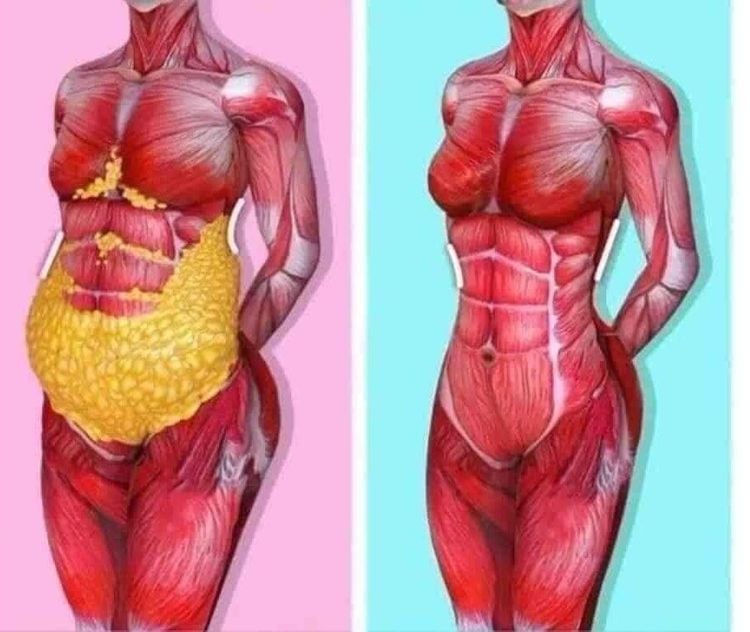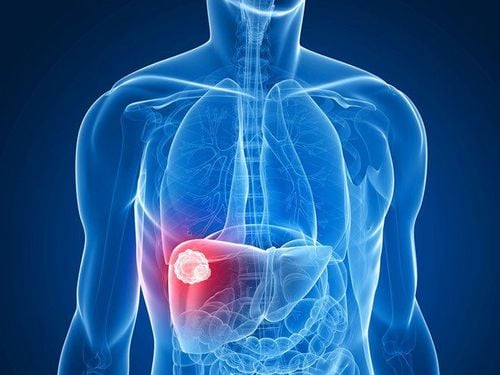This is an automatically translated article.
Visceral fat develops around the waist area and is formed due to an unreasonable diet and lifestyle. Too much visceral fat can directly increase the amount of fat in the blood, leading to diseases such as diabetes, blood fat, heart disease....
1. Where is visceral fat in the body?
Body fat plays an important role to design cushions and support organs to build cells as well as store energy for the body. Too much body fat can be harmful to health. Therefore, most people trying to lose weight want to be able to lose a significant amount of fat.
Visceral fat is usually stored in the abdominal cavity and in the tendons of some organs of the body such as the liver, stomach, intestines. The amount of fat in the body is created and distributed unevenly, so visceral fat often accumulates in the arteries and increases the risk of health effects.
However, some people are still confused about subcutaneous fat and visceral fat. But belly fat can develop from these two types of fat. This fat is initially stored under the skin and then develops into fat located in the abdominal cavity and is not easily detected.
The cause of visceral fat formation is due to a high carbohydrate diet along with some inflammation in the body or chronic stress. An unhealthy diet increases the risk of developing obesity or some other disease related to basal metabolism.
To most accurately determine visceral fat you should perform imaging tests such as computed tomography or magnetic resonance imaging. However, to conduct these tests requires a rather expensive and time consuming investment. On the other hand, a doctor can diagnose internal fat by examining and asking the patient about their diet and lifestyle. Or your doctor can calculate your percentage of visceral fat based on your waist size. In addition, the body mass index (BMI) also helps to assess the prevalence of fat in the body. However, using BMI and weight alone is not a complete reflection of the body's visceral fat status and is not an accurate measure of overall health.

Mỡ nội tạng thường được dự trữ trong khoang bụng và ở gân
2. Is visceral fat dangerous?
Visceral fat can cause the following health concerns:
Increased insulin resistance: Even if you've never had diabetes or prediabetes, it can still happen. increase insulin resistance. The main cause of insulin resistance may be the secretion of fat in visceral fat that causes proteins to bind to retinol. Inhibits the action of fat hormones: In addition to visceral fat will disrupt insulin action, it also increases inhibition with hormones such as adiponectin or fat hormone. This hormone acts as a fat regulator, when the amount of this hormone is too low to meet the body's requirements, it can be caused by excess fat. These effects increase the risk of cardiovascular diseases, high blood pressure, hypercholesterolemia, increased LDL and VLDL cholesterol, decreased HDL cholesterol or hypertriglyceridemia... Increased inflammatory responses in the body: Visceral fat large will increase inflammatory responses in the body, especially for organs such as the liver. When this happens, fat cells release inflammatory cytokines that make the disease worse. Visceral fat can also make it difficult for the body to eliminate toxins. Excess visceral fat stored in the body can increase the risk of developing serious and possibly even life-threatening long-term conditions such as stroke, breast cancer, Alzheimer's disease, problems related to cardiovascular disease type 2 diabetes, colorectal cancer...
3. How to reduce visceral fat in the body
Excess visceral fat causes many extremely dangerous health problems. Therefore, it is necessary to make changes to the diet as well as a healthy lifestyle to reduce this amount of fat in the body. Specifically:
Regular exercise is considered an effective method to help reduce visceral fat in the body. You can use a combination of exercise methods including cardio to get your heart rate up and strength training to improve and build better muscle. Cardio exercises that can be applied in this method include swimming, cycling, jogging, aerobic exercise, .. and exercises that help increase strength and stimulate muscle formation include weight training, push-ups, squats... Controlling the body without stress also helps to reduce the accumulation of visceral fat in the body. When the body is under stress or too much stress, it can secrete the hormone cortisol and this substance increases the content of fat in the visceral. In order to prevent this from happening, you must often relax by applying meditation, deep breathing, listening to music, reading books so that your emotional state returns to balance... Besides, you can spend 7 to 9 hours resting and sleeping each night. It is also seen as important for overall health. Many studies show that people who sleep less than 6 hours a day are more likely to have higher levels of visceral fat. Each person should consume energy between 25 and 30 kcal of body weight in a day. At the same time, it is advisable to combine the use of foods rich in nutrients necessary for the body. For example, protein from lean meat, fruits, vegetables, complex carbohydrate foods such as sweet potatoes, beans, cereals... Besides, it is necessary to stay away from beverages as well as stimulants including beer, wine, coffee,...

Mỡ nội tạng dư thừa gây nhiều vấn đề vô cùng nguy hiểm tới sức khoẻ
Visceral fat is not like subcutaneous fat because it is located deep in and around the abdomen and nearby organs. It not only affects aesthetics but also increases the risk of cardiovascular disease, blood pressure... So you need to follow a reasonable diet, healthy lifestyle and exercise in moderation to prevention and reduction of visceral fat.
Please dial HOTLINE for more information or register for an appointment HERE. Download MyVinmec app to make appointments faster and to manage your bookings easily.













